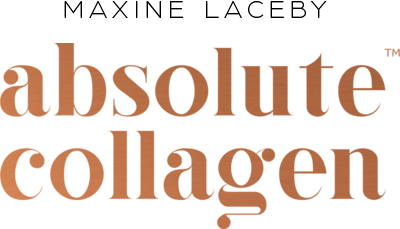Blog
Signs You Have Collagen Deficiency
May 01, 2019

Did you know that collagen constitutes 30% of your body cells?
As it’s such an important part of the body’s structure, having a collagen deficiency causes many conditions that some people have reportedly learnt to live with.
Here, we look at some signs of collagen deficiency and the most common diseases that collagen deficiency causes.
Signs you have collagen deficiency

It is very natural that as you age your body begins to manufacture less collagen. In other instances, you might be living in places where you are often exposed to too much pollution, smoke and excessive sun rays.
All these are likely to subject your body to collagen deficiency. Collagen deficiency also results from your body lacking various antioxidants that are responsible for keeping collagen strong. Below are 10 signs you have a collagen deficiency:
Wrinkling
Collagen is responsible for giving the skin its structure and strength. It is very likely that as you age your collagen stores slowly become depleted.
As a result, your skin begins to lose some of its structures leading to the formation of wrinkles, especially on the face.
If no measures are taken to reverse this process, the wrinkles quickly spread throughout the entire body, leading to the sagging of skin.
Aching muscles

Collagen binds muscles to ligaments and bones. Collagen deficiency causes the weakening of collagen fibres, which eventually results in the weakening of the connection of these structures.
As a result, you begin to experience more aching muscles and additional friction.
Cellulite
Collagen is responsible for making up your skin’s connective tissues. As such, it is responsible for skin elasticity, skin firmness, cell renewal and suppleness.
When the fatty tissues underneath the skin push upward against your body's connective tissues, the skin at the surface begins to pucker, resulting in cellulite.
As the levels of collagen in your body reduce further, your skin eventually becomes less firm, grows thinner and becomes more vulnerable to damage. This results in the worsening of cellulite.
Flat or thin hair
Collagen is found in the space around your hair follicles. The micro-vessels deliver the essential nutrients from your body to your hair, keeping it nourished and healthy.
As a result, your hair is lengthened, and the appearance of a shiny, fuller mane is enhanced.
Depletion of collagen slows down the delivery process. Consequently, this leads to duller, thinner hair.
Considering that the collagen protein is also responsible for fighting off free radicals from pollution and sun rays, its deficiency may lead to the destruction of the texture of your hair, hinder its growth and negatively impact on its thickness.
Hollowing of the face and eyes
When you closely look at a child, you are most likely to notice their smooth skin and the fullness of their face.
However, this is contrary to what you will see in adults. Ageing causes the fading of this natural, glowing look.
Collagen deficiency causes the area around your eyes to appear darker and hollower. Your cheeks may also begin to thin.
Final thoughts
Collagen holds your body together, giving it the necessary elasticity. It is the supporting block of the tissues of your body.
Collagen deficiency causes many problems such as lupus, rheumatoid arthritis and systematic sclerosis. Usually, your body will show you the signs of collagen deficiency if you are keen enough to notice.
Limiting your exposure to scorching sun rays and pollution, and quitting smoking, are some of the best practices to help you stay safe.


